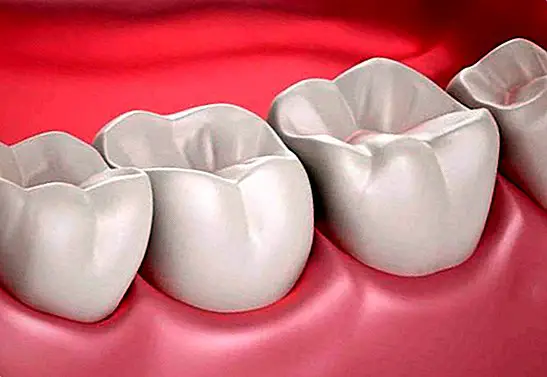Spring allergy: symptoms, causes and treatment
The allergy it is a reaction of our organism to a certain substance that it perceives as a harmful agent, so that our immune system is activated from the moment in which it detects agents that it considers strange.
We are, therefore, faced with an erroneous and excessive response of our immune system, which in the case of spring, acts against certain substances found in the inhaled air. And, usually, what is produced is actually a Pollen allergy.

These substances are above all pollen and dust, although we could also find other substances that our body can identify as strange and potentially dangerous.
In the spring the great majority of the allergic reactions take place, since, as we know, it is the period when many plants produce pollen, a substance to which approximately 15% of the population is allergic.
The pollen has a yellowish powder appearance, and is a really small substance, which when dispersed, becomes practically invisible. But the problem is that pollen is recognized by the body as an enemy substance that must be destroyed.
Symptoms of spring allergy
The symptoms that appear after the arrival of spring, especially during the days of greatest pollination (ie, the presence of pollen in the air we inhale) are, in most cases, easily identifiable:
- Itchy eyes or nose.
- Runny nose accompanied by nasal congestion.
- Rhinitis.
- Cough, especially after having exercised physically.
- Drowning sensation
- Redness in the skin
- Lachrymation
- Annoyances to the light.

What are the causes of spring allergy?
Evidently, during the spring the main cause of allergy is pollen, precisely because we are facing a time of year during which plants tend to produce it more frequently and then spread it to the atmosphere.
In addition to the pollen itself, we must bear in mind that when pollen is combined with chemical particles from pollution, compounds that could be considered as more complex are created in turn, being even more dangerous to our immune system.
Spring allergy treatment
Medicines
- Antihistamines: are drugs that block histamine receptors.
- Topical nasal steroids: help improve nasal obstruction.
- Steroids: are more potent drugs, recommended in case of presence of more intense symptoms.
Immunotherapy
They are vaccines that contain extracts of pollen proteins, and are applied in the form of injectables, or orally, always in progressive doses to generate a tolerance of the immune system.

Some useful tips to relieve spring allergy
- A good recommendation is to reduce outdoor activities, preferably between 5-10 in the morning and from 7 to 10 at night. And when we go out, put on sunglasses to protect our eyes.
- Avoid leaving in those days of wind when pollination is high, and when therefore the concentration of pollen is higher.
- Keep the windows closed at night, and use for example air conditioning with filters, and keep the windows of our vehicle closed.
- During pollination days, do not dry clothes outside.
How to have a clear nose
Now that we start with the allergy period, especially if you are one to which the arrival of the season affects you to a greater extent, there are some tips that will help you enjoy a much more clear nose, and ultimately to breathe happily and more easily. The truth is that it is a good time to take action, since according to experts, the impact of allergies this year will be moderate due to the weather.
Here are some of these basic tips that will be of great help:
- When traveling by car: If you have to travel by car try to always do it with the windows closed, as well as with the anti pollen filters installed to filter the air that will enter it.
- To the care of your eyes: not only is it appropriate to take measures to breathe better, it is also convenient to take care of our eyes. How? Using sunglasses that will prevent both pollen and dust from entering them directly.
- At home: keep the windows closed as long as possible. If you clean the dust with a cloth it is advisable that it is wet to catch it better. Although the most useful thing is to vacuum at least twice a week, ideally with a special filter for allergy sufferers.
- If you have air conditioning at home: It is convenient that you use it because it has filters that prevent the entry of pollen.
Do not forget to enjoy life, and especially the spring, considered by many as one of the most beautiful and beautiful seasons of the year. And, especially if you are allergic, it is essential that you know the time of pollination of the species, particularly those to which you are allergic.
And if you have the stuffy nose, an effective and 100% natural remedy to combat it is to use a seawater solution, especially, which in addition to decongest, cleans and hydrates your nose.
What are respiratory allergies and why do they occur?
A respiratory alergy it tends to fit within our immune system of the organism, a fundamental and indispensable system when it comes to recognizing the entrance into our body of strange elements, to then organize the defense in front of them and fight to eliminate them.
For this reason, the respiratory alergy It is considered a defense response (although exaggerated) of our body, especially when it comes into contact with certain substances. Primarily allergens, which our body identifies as aggressive substances.
Although there is no known specific cause that leads to the person suffering or not respiratory alergy, the truth is that, as many experts say, the allergy can not be attributed to a single substance, or many.
Rather it is the individual himself, who is genetically predisposed to develop these exaggerated responses. This article is published for informational purposes only. It can not and should not replace the consultation with a Physician. We advise you to consult your Trusted Doctor. ThemesSpring



